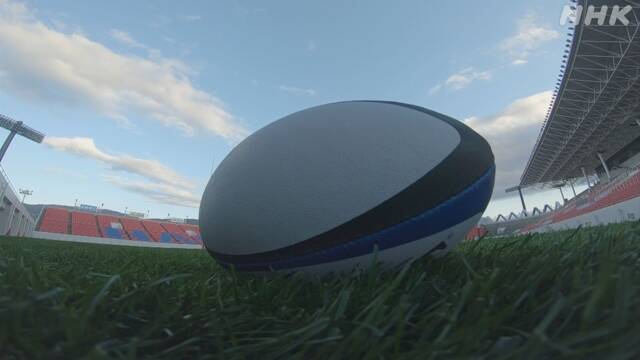Among the top league players in Japan, more than 40% of the players have some kind of mental disorder such as psychological stress, according to a questionnaire conducted by national research institutes over January last year. It was.
According to the expert who conducted the survey, "Athletes are often thought to have a strong spirit, but they need to reaffirm their awareness and support them in the same way as ordinary people."
The National Center of Neurology and Psychiatry and the Japan Rugby Football Players Association conducted an anonymous questionnaire on the Internet for two months until January last year, targeting 600 top league players, and received responses from 251 people. ..
According to it, 32.3% of the athletes had psychological stress in the past month.
In addition, 4.8% of the athletes were suspected of having depression or anxiety disorder, and 5.2% were suspected of having severe symptoms that interfered with their social life.
A total of more than 42% of athletes suffered from such mental disorders, which is more than 10 points higher than that of ordinary adults.
In addition to changes in appetite and weight, these athletes had sleep problems and drunken problems, were worried about lack of participation and reduced competitiveness, and about their life after retirement. It means that the people who think about it stand out.
In addition, some athletes answered that they were thinking of ending their lives, and the percentage was 7.6%, which was almost the same level as ordinary adults.
Researcher Yasushi Oshio of the National Center of Neurology and Psychiatry, who conducted the survey, said, "Athletes other than rugby may be in the same mental state." The spread of the infection can be psychologically burdensome and the situation may be exacerbated. Athletes are often thought to have a stronger spirit than the average person, but the team and people close to them reaffirm their awareness. We need to support them mentally. "
Mental health of athletes who have been viewed as taboo
Yasushi Oshio, a researcher at the National Center of Neurology and Psychiatry, who conducted this survey, points out that "even athletes may experience as many mental health challenges as the general public." I will.
On top of that, "Athletes tend to be thought of as having strong mental strength, and it is possible that they and the sports world as a whole think so. Until now, the mental health of athletes has not been clarified as taboo. However, it is necessary to understand the actual situation in sports other than rugby. "
Furthermore, after the investigation, in connection with the spread of infection with the new coronavirus, "the movements surrounding the holding of the Olympic Games may have affected the mental aspects of athletes, and further investigation is required. For those who need help, it is necessary to create relationships that can be supported by people close to them, such as teammates and family members, and listen to their concerns. "
Unusual joint research with the players' association First survey in Japan
According to the National Center of Neurology and Psychiatry, research and research on the mental health of athletes is underway in Europe, the United States and Australia, but this is the first time it has been conducted in Japan.
There are multiple statements from the IOC (International Olympic Committee) regarding the mental health of athletes, and it is not uncommon for athletes to have mental illness, which affects their athletic performance, as well as physical illness. It has been pointed out that early detection and appropriate measures are important, recovery is possible, and support measures are urgently needed.
Under these circumstances, the "Japan Rugby Football Players Association", which is made up of domestic rugby top league players, has moved.
In collaboration with the National Center of Neurology and Psychiatry, we embarked on a fact-finding survey.
The athletes' association conducted an anonymous questionnaire to the members on the Internet, and the center analyzed it, resulting in an exceptional joint research.
The athletes' association said, "There are many athletes who are worried about the expectations and ideals of their surroundings. The pressure that they should not collapse their bodies and minds can cause problems in their minds. By disclosing the survey results, not only rugby players but also athletes who are active in the top category need mental care as "one person" and improve performance through active care. I want to spread the idea that it is desirable to continue to the world. "

